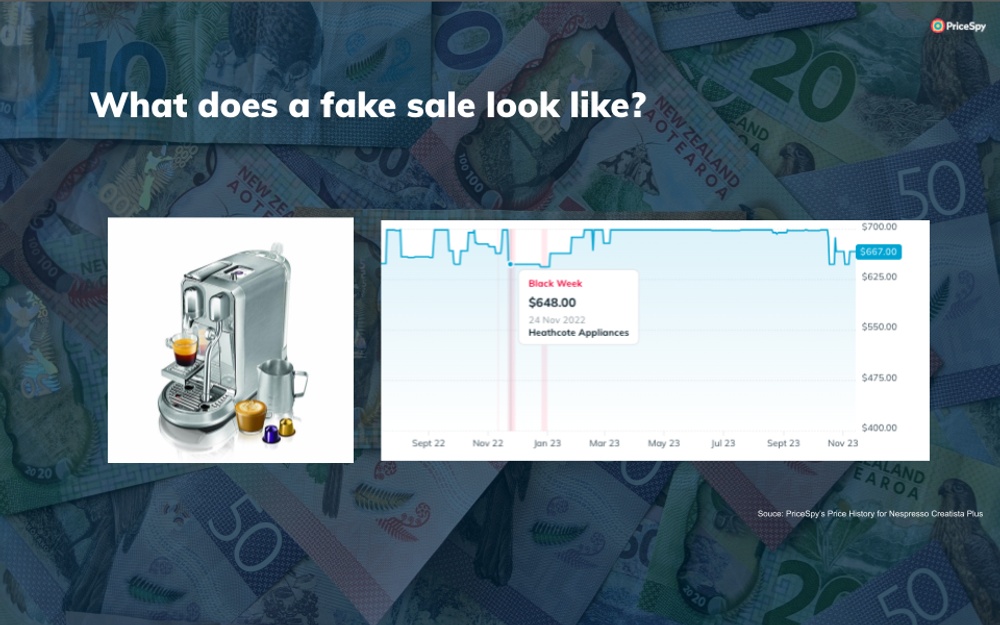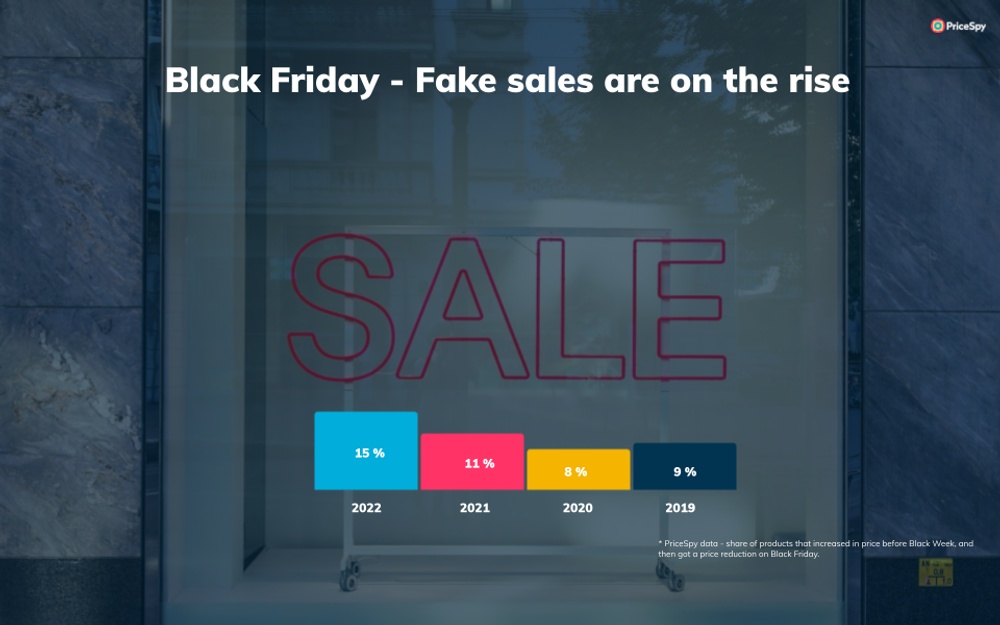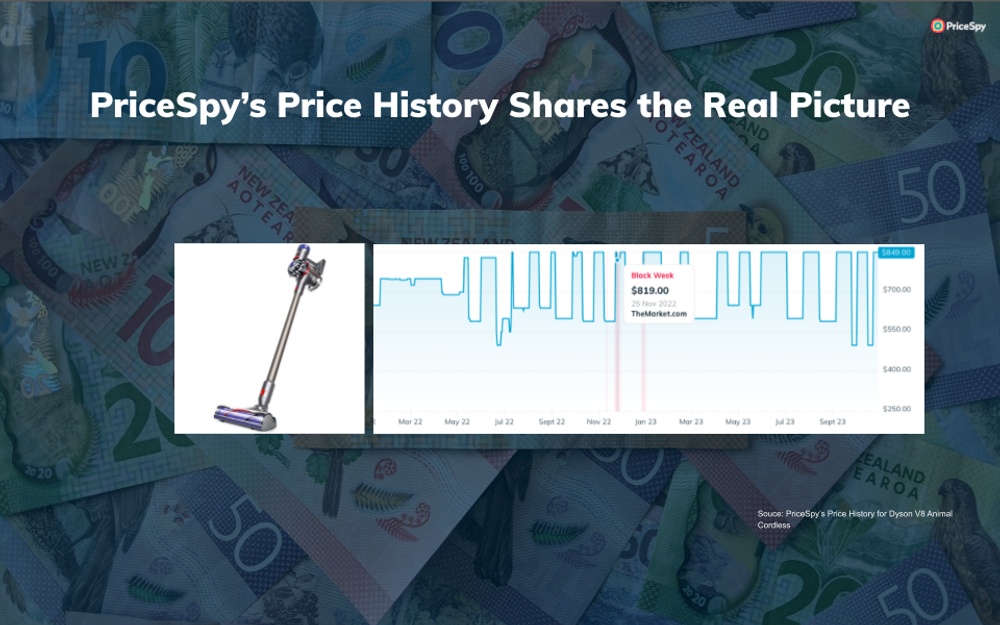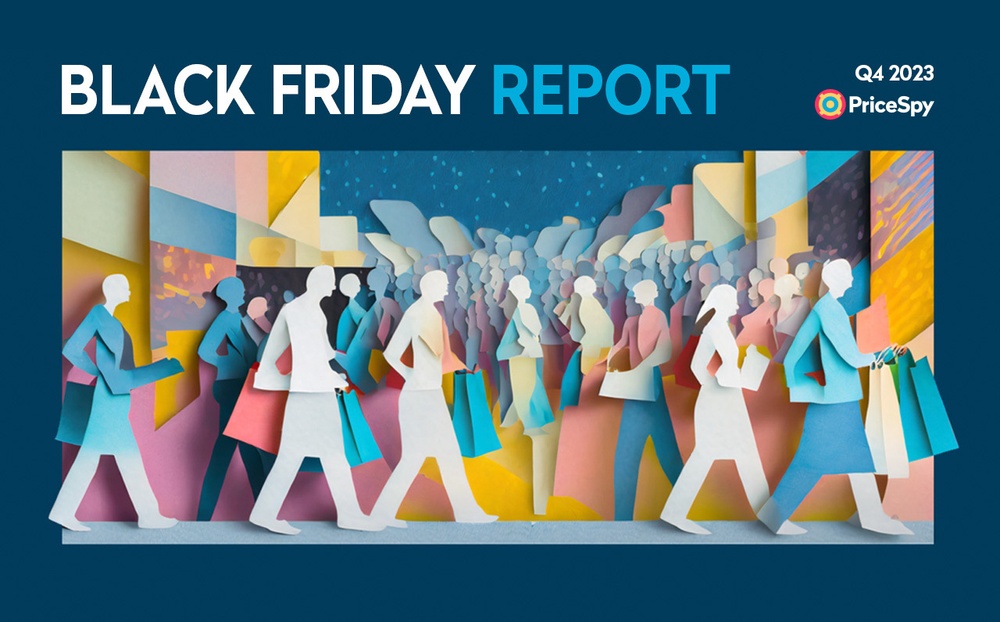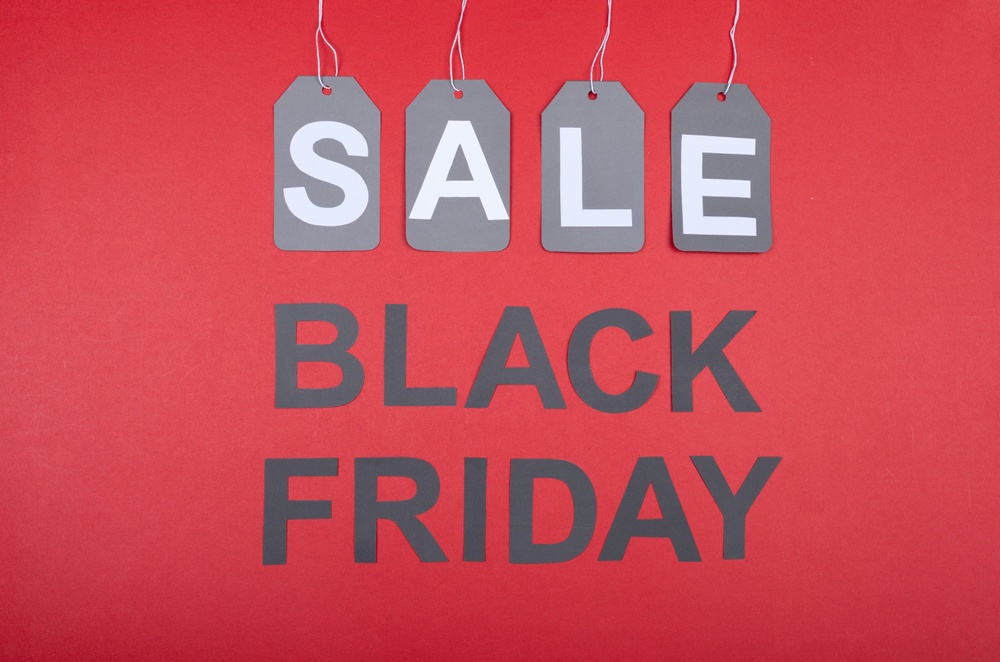Alarming Warning Issued Ahead of Black Friday: Beware of Fake Sales
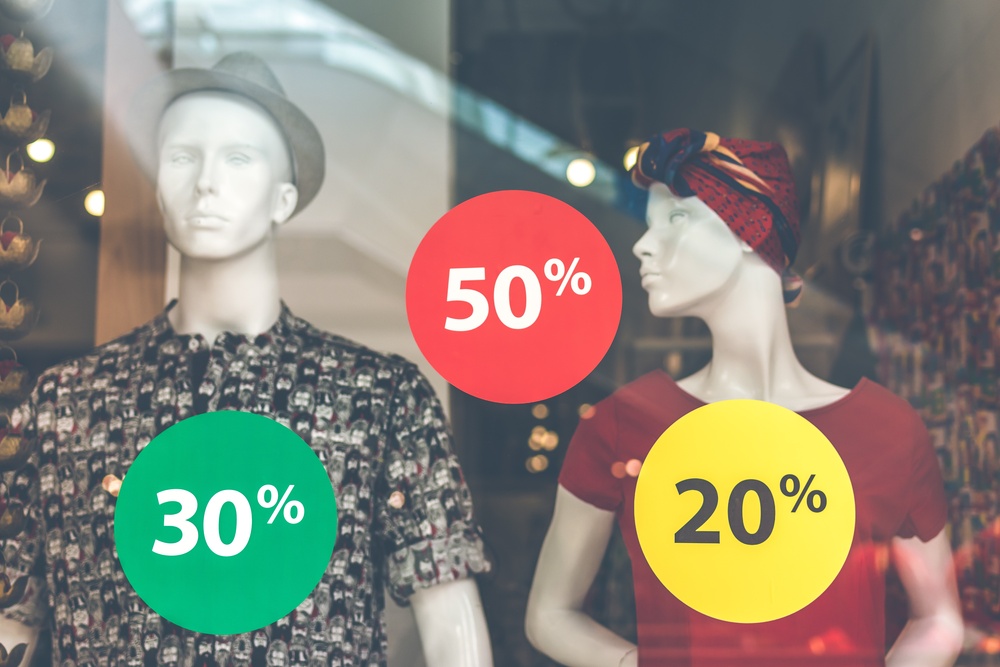
Ahead of Black Friday, a globally recognised event known for its significant discounts, PriceSpy, the fully impartial price and product comparison site, is delivering an urgent message to Kiwi shoppers: Be on high alert for fake sales.
This development is underscored by PriceSpy's latest research, which reveals the prevalence of fake sales is notably increasing:
- Approximately 15 per cent of all products listed on PriceSpy were subjected to being a 'fake sale' on Black Friday last year, whereby price points were hiked by retailers before Black Week and subsequently decreased again on Black Friday.
- These findings represent a significant increase of seven per cent compared to PriceSpy’s 2019’s data, underscoring a growing trend in 'deceptive discounting'.
The term ‘fake sales’ or ‘rollercoaster pricing’ as it may otherwise be referred to, is whereby a retailer gradually hikes a product’s price, before suddenly dropping the price and advertising a discount based on the highest previous price. For example, claiming a discount of 50% compared to the previous day’s price, but - if compared to the price 30 days ago - it may only be a 20% discount.
What does a fake sale look like?
Source: PriceSpy
Liisa Matinvesi-Bassett, New Zealand country manager for PriceSpy, says: “Despite today’s cost of living crisis impacting Kiwis, a significant number of shoppers are still expected to turn up and seek out discounts and cost-saving opportunities this Black Friday.”
“PriceSpy's 2023 survey suggests that over half of Kiwi consumers, around 52%, are planning purchases this Black Friday. While many retailers offer genuine discounts, our research also shows a concerning increase in fake sales during major events like Black Friday.
“In light of these findings, we advise consumers to be particularly diligent and conduct thorough pricing research before making any purchases across this year’s sale season.”
Source: PriceSpy
Compare Black Friday 2024 deals and check the price history with PriceSpy.
Jessica Walker, Communications and Campaigns Manager at Consumer NZ, says: “We've previously found many big-box retailers to play fast and loose with ‘sale’ pricing. Our investigations have discovered a number of instances where the savings advertised are rarely as good as they seem.”
Be Cautious: Not All Black Friday Prices Mean Savings
PriceSpy further cautions shoppers that Black Friday prices aren’t always synonymous with discounts. In fact, historical data from the price and product comparison site shows that in 2022, 16% of products listed on the site saw price increases on Black Friday compared to a normal shopping day (1 November 2022).
Liisa says: “Our extensive research over many years, indicates that Black Friday is one of the cheapest days of the year to shop in New Zealand.
“While there are indeed significant discounts to be found, our ongoing analysis also uncovers some dubious sales tactics. It's crucial for consumers to be aware that not all deals are as beneficial as they appear. In some instances, prices for products on Black Friday are actually higher, and on other occasions prices are being hiked before Black Friday to make a discount appear better than what it is.
“This underlines the vital need for shoppers to be skeptical of face-value prices during Black Friday sales. It’s important to conduct quick yet thorough pricing research. Tools like PriceSpy, which provide detailed pricing histories, are invaluable in helping shoppers understand past price trends and make more informed purchasing decisions.”
Popularity vs. Best Price: Insights from PriceSpy's Report
PriceSpy's 2023 Black Friday Report underscores that popularity doesn't guarantee the best deals. An analysis of top 20 sought-after products in 2022 revealed:
- Before Black Friday, 60% of these products were priced lower than their Black Friday lowest price.
- After Black Friday, 85% of them were available at lower prices.
- On Black Friday itself, only 10% were at their lowest, with 90% being cheaper either before or after the event.
“Our findings suggest that popular items often have better prices outside of Black Friday. Shoppers should therefore consider a product’s pricing history to ensure the best value, rather than getting swept up in the sale day frenzy.
“And remember, bigger savings can often be found amongst the older models that have been on the market for some time, or if a newer product is about to launch, as retailers will need to sell-through stock of the other models”.
Source: PriceSpy’s Price History
Optimistic outlook despite challenges: Black Friday deals
Fake sales and price hikes aside, PriceSpy's research offers encouraging insights that underscore the saving opportunities that Black Friday presents:
- The indexed price change on Black Friday 2022 was the best it has ever been, dropping -6.52 per cent**, indicating the number of products and discounts offered on Black Friday is vastly improving;
- Almost half (48 per cent) of all products listed on PriceSpy received a price drop on Black Friday 2022*;
- Over a fifth (22 per cent) of all items listed on PriceSpy dropped in price by at least 10 per cent or more, offering an average saving of -21 per cent*.
“Despite concerns around fake sales and price increases, Black Friday still offers significant saving opportunities if shoppers are willing to put the time into finding them.
“By adopting a more strategic approach, consumers can navigate this year’s sale season more effectively, ensuring their purchases are genuine bargains and not purchases that they later live to regret.”
PriceSpy’s smart shopping strategies:
- Quality over newness - Consider older, well-reviewed models for better value.
- Historical pricing analysis - Don’t just look at the current price or discount being offered. Assess the product's price history to gauge the real value of the deal.
- Price comparisons - Utilise PriceSpy to compare prices across retailers and make the most of price matching where available.
Jessica concludes: “Our advice to shoppers is to do your research. Every purchase you make is a vote for the kind of businesses and business practices you want to see in the future, so we encourage New Zealanders to do their research before getting sucked up in the hype.”
“Also, if you see that the item you want is available for a cheaper price somewhere else – try your luck asking for a price match. And finally, be prepared to wait. Stores love impulsive buyers.”
About PriceSpy NZ
PriceSpy is a comprehensive price and product comparison service used by millions of consumers every month. It helps consumers find, discover, research and compare products. Since the business first started in 2002, its main objective has been to help consumers make better purchasing decisions. PriceSpy does this by collecting and sharing honest, transparent information about retail stores, products and prices. PriceSpy has 108,000 indexed products, 1,730,000 indexed prices, 584,000 product ratings, 7,510 store ratings and 1183 stores. Providing a fully impartial comparison service for consumers and a deep depository of price data for retailers. PriceSpy is part of Schibsted and is located in Sweden, Norway, Denmark, Finland, New Zealand, France and the United Kingdom. The PriceSpy app is available to download for free, via the App Store and Google Play.
Contacts

